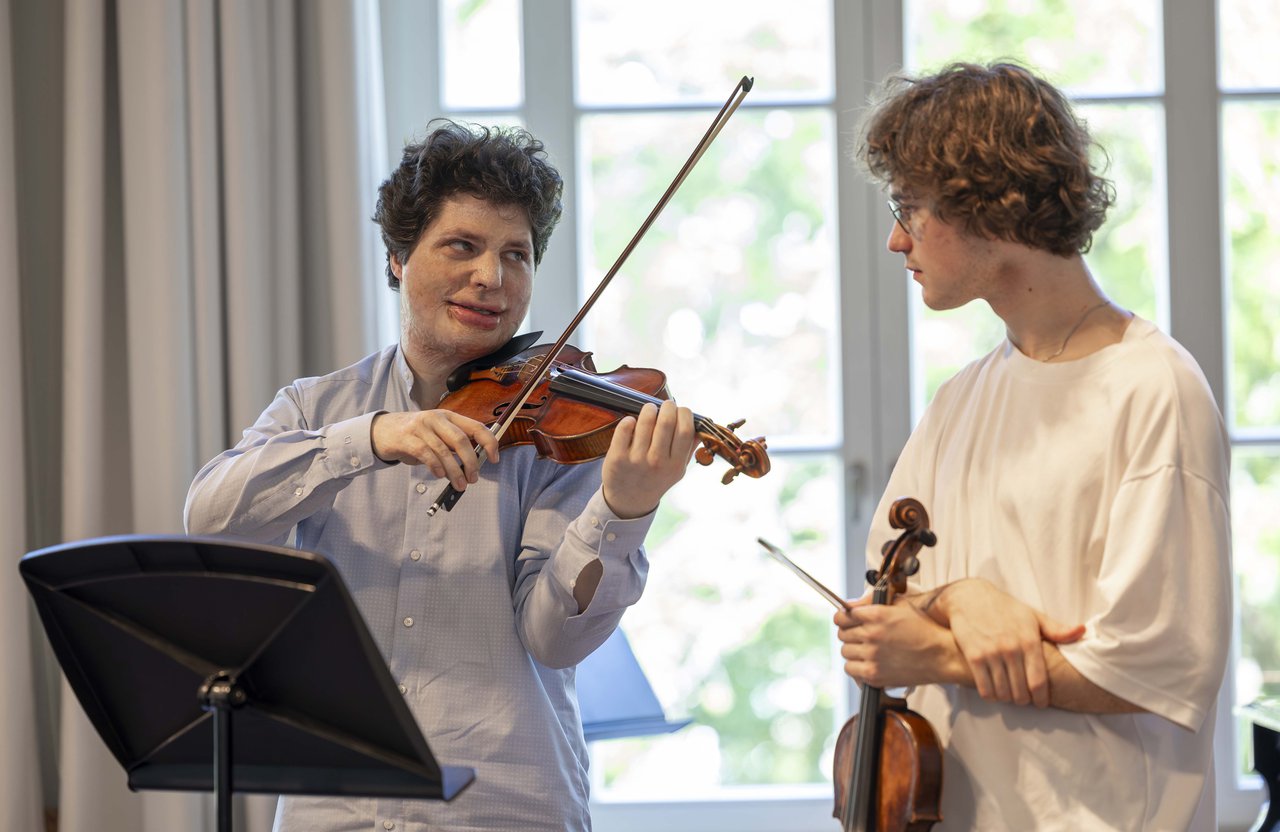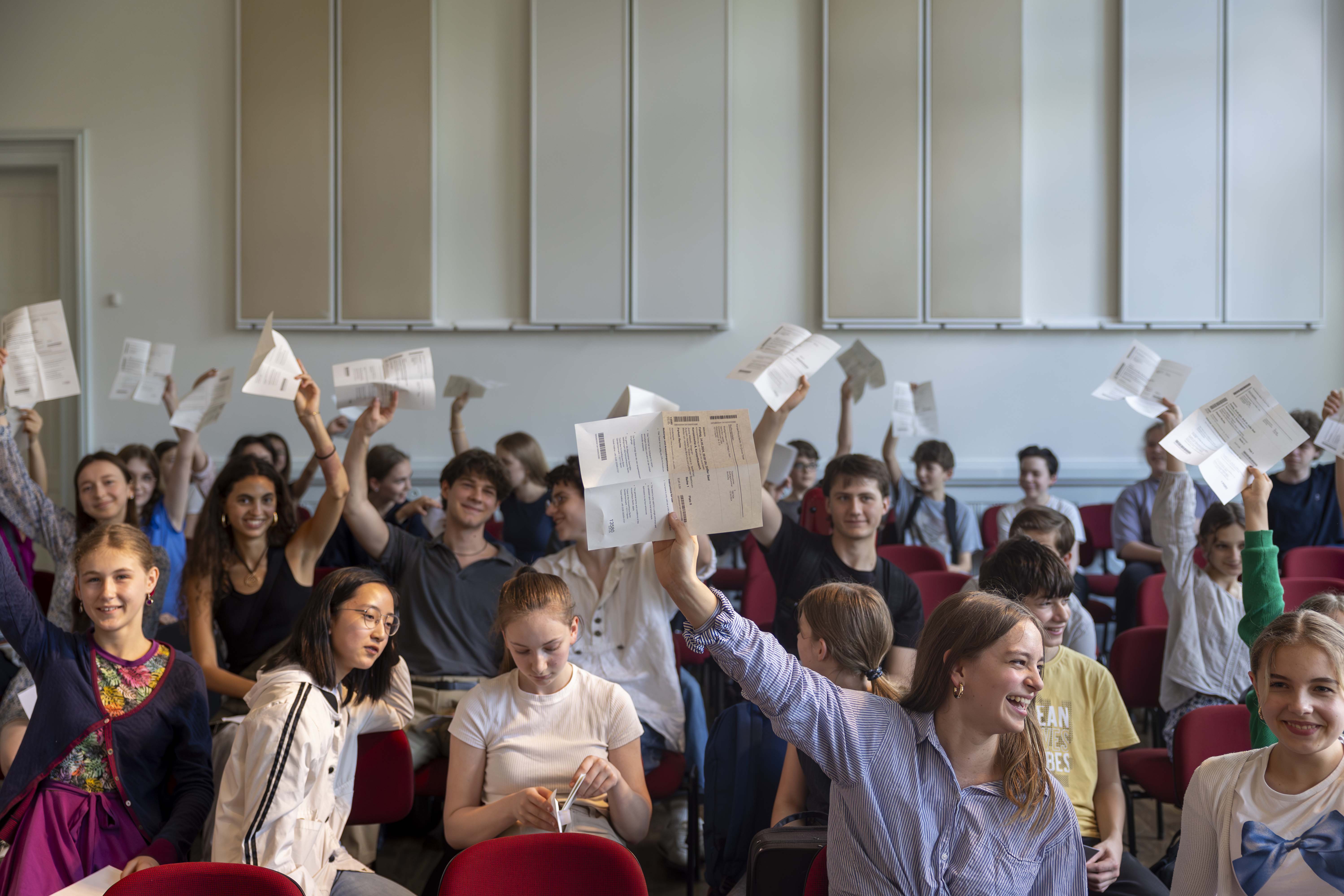13.00 Uhr
Führung durch das Konzerthaus Berlin

The Carl Philipp Emanuel Bach Gymnasium in Berlin-Mitte has been associated with the Konzerthaus Berlin for decades: Already a specialised school for music in GDR times, where many of our orchestra members were trained up to A-levels, it is now our partner school, where a lot of KHO musicians are among the teachers of the next generation of young musicians.
For a Friday morning in May, Clarinettist Norbert Möller, who has been teaching at his old school for many years, has organised a special highlight: A masterclass for pupils with our Artist in Residence, violinist Augustin Hadelich.
‘It's interesting to see what's written in the notes,’ says Augustin Hadelich after 14-year-old Kira Koch has finished her brilliant piece by Polish violinist and composer Henryk Winiawsky. He is referring to the eighth-grader's own notes in her voice - and thus has a very personal insight into the young violinist's intensive work.
It is as quiet in the Bach Grammar School auditorium as if there were not 70 children and young people sitting close together to follow the violin soloist's masterclass - young violinists, but also many who play other instruments.
"Technically, everything is going really well," praises Augustin. He gives advice on many details that can make a violinist's life easier - from the vibrato to the overall structure of the piece: "Emphasize the playfulness so that it doesn't look so much like hard work." Kira, highly focussed, nods. She will certainly explore all these tips, she says afterwards. It is quite clear to Kira that she wants to become a violinist.
It is so quiet in the auditorium of the Bach Grammar School that it is as if 70 children and young people were sitting close together to listen to the violin soloist's masterclass - young violinists, but also many who play other instruments.
Ilja Monti plays Camille Saint-Saëns' famous “Introduction et Rondo Capriccioso” op. 28 with great concentration, relaxation and obvious joy. “Being able to learn from such a great violinist was a great opportunity that made me very happy and enriched me,” the 19-year-old school leaver will tell us afterwards. And Augustin also really ‘enjoyed listening to the piece’ as Ilja played it.
After the two teaching sessions, there are many questions from the audience, which Augustin answers in a highly attentive and supportive manner. He reveals that a globetrotting soloist like him simply has very little time - so good organisation is incredibly important. This also includes making precise notes after concerts again and again because "it's a waste of time if you solve the same problem several times.’ What you have written down can simply be taken up again. And: "It's better to practise consciously and with concentration right away. Browsing around and fiddling to yourself is good for your personal feel-good factor, but otherwise doesn't help."
The question of how long a daily practice session should be is probably as old as music-teaching. Of course, it is asked. Augustin's answer certainly surprises some people, as he doesn't give anyone a specific number of hours. It depends on the phases of life, is his answer: "Sometimes it's good to practise very intensively for a year. But then there are phases when you need other inspiration and balance: For example, listening to music, reading, watching films and thinking - not just about music."

And those lucky enough to win a concert ticket in our prize draw for (active and passive) masterclass participants are able to hear Augustin Hadelich and the Konzerthausorchester perform Johannes Brahms' Violin Concerto under the direction of Joana Mallwitz at Gendarmenmarkt.